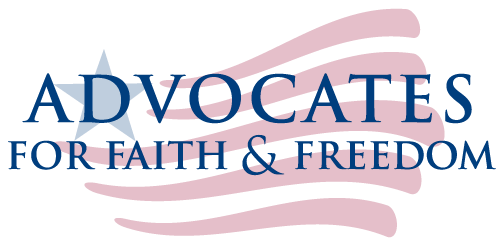THE DILEMMA
Empowering Educators of Faith: Navigating Challenges
and Upholding Convictions in Today's Educational Landscape
Becoming a teacher is not merely a career choice; it's a transformative journey marked by personal sacrifice, intensive training, and continuous learning. It entails dedicating years to obtaining the necessary education and accreditation, often through rigorous academic programs and practical experiences. This path demands a deep commitment to teaching excellence and a love for guiding students toward success.
However, in today’s educational landscape, teachers are facing significant threats to their First Amendment rights. Many educators face adverse employment actions, including termination, for refusing to comply with school policies that conflict with their deeply held religious beliefs and convictions. These policies range from compelling teachers to refer to students by preferred pronouns, to lying to parents about their students' gender identity, to restricting religious or political expression both on and off campus.
As believers in our nation’s principles, we hold dear the First Amendment's protections for educators. The three clauses of the First Amendment prohibit the government from hindering religious expression, bar the government from establishing or favoring religion, and shield individuals from government interference with their personal expressions. The United States Supreme Court has long recognized that “First Amendment rights, applied in light of the special characteristics of the school environment, are available to teachers and students. It can hardly be argued that either students or teachers shed their constitutional rights to freedom of speech or expression at the schoolhouse gate.” Tinker v. Des Moines Indep. Cmty. Sch. Dist., 393 U.S. 503, 506 (1969).
Along with receiving vast First Amendment protections, public school-staff also receive protections under Title VII of the Civil Rights Act of 1964. Title VII prohibits school employers from discriminating against educators because of their sincerely held religious beliefs. See 42 U.S.C. § 2000e-2(a). A school district violates Title VII when it fails to engage in a meaningful interactive process to accommodate employees’ religious beliefs or takes adverse employment action against employees because of their religious beliefs.
These issues underscore the complex interplay between personal beliefs, professional duties, and legal safeguards within the educational system. Teachers are forced to confront the daunting and often financially burdensome prospect of legal battles to defend their rights. This ordeal exacerbates the harm caused by lost income, emotional distress, and the looming threat of unemployment. The financial strains imposed on educators force them to make significant sacrifices, including tapping into retirement savings to provide for their families.
We stand ready to support teachers of faith who feel burdened by the challenges that have permeated the education system. It is our firm belief that educators of faith should not have to compromise their convictions and principles while serving in public schools. It is this unwavering commitment that drives us to offer our services to clients free of charge. Our mission is to empower these educators by equipping them with a comprehensive understanding of their constitutional rights and providing actionable strategies for navigating conflicts within their school districts. With a dedicated team experienced in advocating for teachers of faith, we are prepared to offer guidance and representation to those who choose to take a principled stand, despite the potential consequences. Together, we can ensure that teachers of faith are supported and protected as they uphold their deeply held beliefs within the educational sphere.
